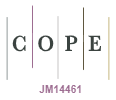The role of social educator in organizations of the third sector
DOI:
https://doi.org/10.5585/eccos.n48.11617Keywords:
Non-Formal Education. Social Educator. Social OrganizationsAbstract
The text proposes the performance reflexion of the social educators in out-of -school located in outskirts of Rio de Janeiro, based on research conducted in four organizations of the Third Sector between 2016 and 2018. The theoretical framework adopted privileged authors that approach the relations between the different educational spaces: Maria da Glória Gohn, Jaume Trilla and José Libâneo; authors dealing with the training of educators: Maurice Tardif and in the category of social pedagogy: Merci Romans. The research executed in four Third Sector organizations, made it possible to cut the guiding questions of the present text: what forms of participation of social educators in the activities carried out by the organizations of the Third Sector? What is the training and the way of selecting the educators for the educational actions of the organizations researched? The corpus of the research was elaborated from the analysis of the semistructured interviews with those responsible for the educational part of the Third Sector organizations participating in the research. The conclusions of this analysis contributed to a better understanding of the relationships between organizations of the Third Sector and the public schools in their surroundings, mediated by the social educator, indicating aspects that could stimulate their performance. At the same time that its strategic role is recognized, it is necessary to discuss educational policies that make it possible to look together among the different educational spaces in order to reverse the social exclusion of a large portion of our children and young people.Downloads
References
AVILA, E. R.. Práticas Educacionais Não Formais de Instituição do Terceiro Setor. Rio de Janeiro, nov. 2016. Relatório de Entrevista da Disciplina Prática de Pesquisa do Mestrado e Doutorado.
EICHLER, Patrícia Sorotheau de Almeida. Práticas Educacionais Não Formais de Instituição do Terceiro Setor. Rio de Janeiro, jun. 2017. Relatório de Entrevista da Disciplina Prática de Pesquisa do Mestrado e Doutorado.
GOHN, Maria da Gloria. Educação não formal e cultural política. São Paulo: Cortez, 2010.
______. Educação não formal e o educador social. São Paulo: Cortez, 5ª ed., 2011.
______. Educação não formal, aprendizagens e saberes em processos participativos. Revista Investigar em Educação. v.1, n.1, 2014. Disponível em: <http://pages.ie.uminho.pt/inved.php/ie/article/view/4/4>. Acesso em: 1 ago. 2015.
LIBÂNEO, José Carlos. Pedagogia e pedagogos para quê ?. 14ª ed. São Paulo: Cortez, 2010.
______. Adeus professor, adeus professora?: novas exigências educacionais e profissão docente. 13ª ed. São Paulo: Cortez, 2011.
MANICA, Loni Elisete Manica; CALIMAN, Geraldo Caliman. Cursos profissionais na perspectiva da pedagogia social. Boletim. Técnico. Senac, Rio de Janeiro, v. 36, n.3, set./dez. 2010, p.43-51.
MENDIZÁBAM, R. Limón. Carácter científico y orígenes de lapedagogía social contemporânea. Revista Iberoamericana de Educación, vol. 75, 2017, pp. 21-44.
MONTAÑO, Carlos E. Terceiro Setor e a questão social; crítica ao padrão emergente da intervenção social. São Paulo: Cortez, 3ª ed. 2005.
POSE, Solange. Práticas Educacionais Não Formais de Instituição do Terceiro Setor. Rio de Janeiro, mai. 2017. Relatório de Entrevista da Disciplina Prática de Pesquisa do Mestrado e Doutorado.
RODRIGUES, Alexandre Manoel Esteves. Práticas Educacionais Não Formais de Instituição do Terceiro Setor. Rio de Janeiro, dez. 2018. Relatório de Entrevista da Disciplina Prática de Pesquisa do Mestrado e Doutorado.
ROMANS, Merce. Formação continuada dos profissionais em Educação Social. ROMANS, Merce; PETRUS, Antoni; TRILLA, Jaume. Profissão: Educador Social. Porto Alegre, Artmed, 2003, p.115-201
SPÓSITO, Marilia Pontes. Juventude e educação: interações entre a educação escolar e a educação não formal. Educação e Realidade.n.33, p.83-98, jul/dez. 2008. Disponível em: <http://www.ufrgs.br/edu_realidade/>. Acesso em: 13 out. 2014.
____________Uma perspectiva não escolar do estudo sociológico da escola.. Revista USP, n. 57, p. 210-226, 30 maio 2003.. Disponível em: <http://www.revistas.usp.br/revusp/article/view/33843 >. Acesso em: 09de de fev. 2019.
TRILLA, Jaume. O universo da Educação social. IN: ROMANS, Merce; PETRUS, Antoni; TRILLA, Jaume. Profissão: Educador Social. Porto Alegre, Artmed, 2003, p.13-50.
TRILLA, Jaume; GHANEM, Elie; ARANTES, Valéria Amorim (Org.). Educação formal e não-formal: pontos e contrapontos. São Paulo: Summus, 2008.
TURATO, Egberto Ribeiro. Metodologia da pesquisa clínico-qualitativa: construção teórico-epistemológica, discussão comparadas e aplicadas nas áreas de saúde e humanas. 2ª ed. Petrópolis: Vozes, 2003.
TARDIF, Maurice. Saberes Docentes e Formação Profissional. Petrópolis: Vozes, 3ª, 2003.
Downloads
Published
How to Cite
Issue
Section
License
Copyright (c) 2019 EccoS – Revista Científica

This work is licensed under a Creative Commons Attribution-NonCommercial-ShareAlike 4.0 International License.
- Abstract 3405
- PDF (Português (Brasil)) 7056







